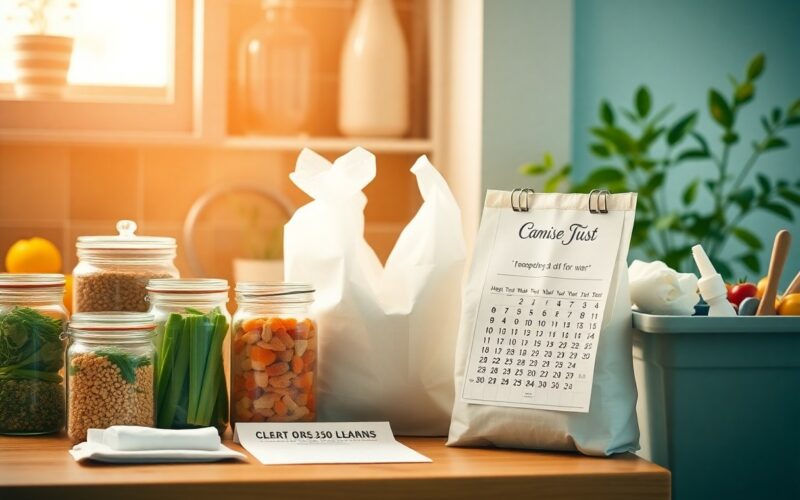This guide will empower you to reduce your environmental footprint by adopting a zero waste lifestyle in just 30 days. You will discover practical steps to cut down on waste, such as avoiding single-use plastics and embracing sustainable practices that not only benefit the planet but also enhance your quality of life. By dedicating yourself to these simple changes, you will contribute to a healthier Earth and foster a more sustainable future for generations to come. Let’s initiate on this transformative journey together!
Table of Contents
Key Takeaways:
- Begin by assessing your current waste habits and identifying areas where you can reduce plastic and single-use items.
- Incorporate simple swaps into your daily routine, such as using reusable bags, containers, and utensils to minimize waste.
- Educate yourself on local recycling programs and composting options to ensure that you are disposing of waste responsibly.
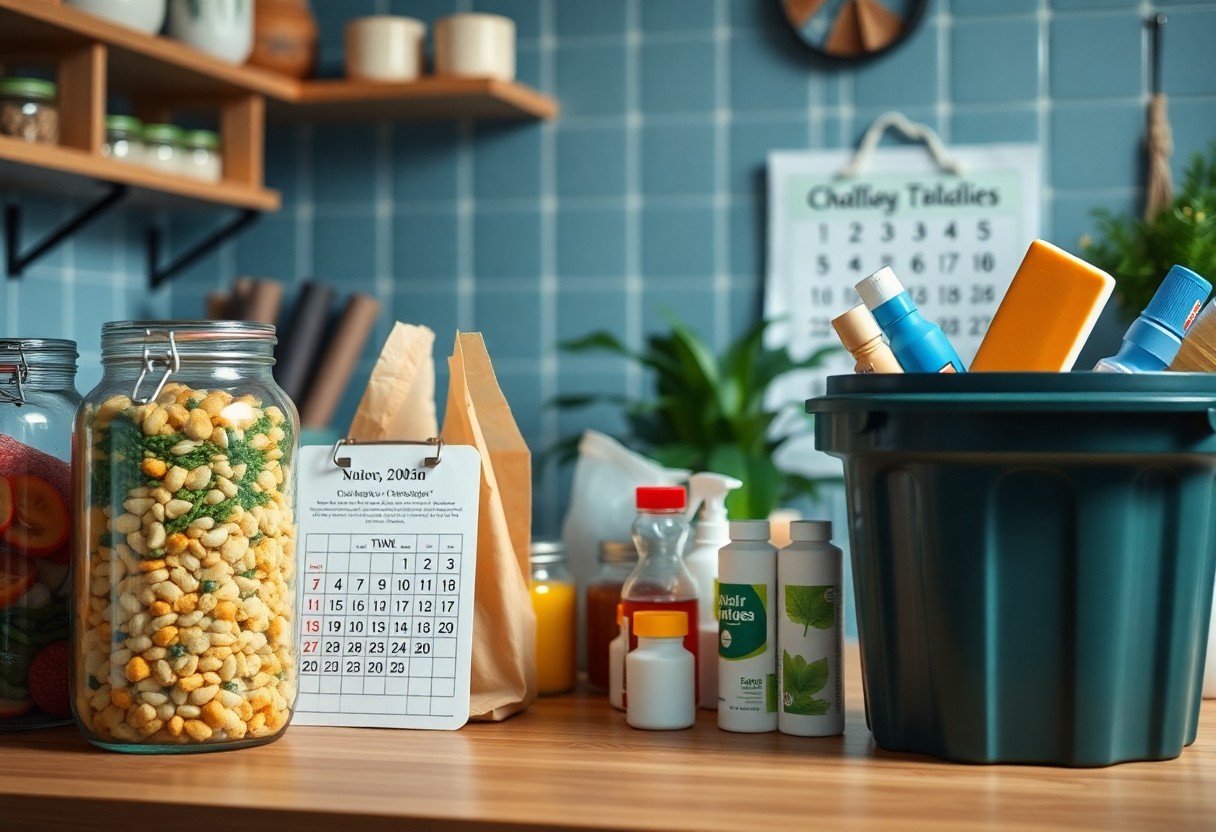
Understanding Zero Waste
Before launching on your journey toward a zero-waste lifestyle, it’s crucial to grasp the foundational concepts of what zero waste truly means. This understanding will empower you to adopt practices that not only reduce your environmental impact but also enhance your overall quality of life. By integrating sustainability into your daily habits, you can promote a healthier planet and a more fulfilling lifestyle.
Definition of Zero Waste
Assuming you are new to the concept, zero waste is more than just a trend; it’s a philosophy that encourages you to design your life in such a way that no waste is sent to landfills, incinerators, or the ocean. The aim is to reduce your reliance on single-use products and embrace sustainable alternatives, thereby contributing to a circular economy where resources are kept in use for as long as possible. In essence, zero waste emphasizes the importance of rethinking how you consume and dispose of materials.
Importance of Living Zero Waste
There’s a growing awareness of the environmental crises we face today. By living zero waste, you actively participate in combating climate change, pollution, and biodiversity loss. Moreover, adopting this lifestyle can elevate your consciousness about consumption patterns, leading to more mindful choices and a stronger connection to your surrounding ecosystem. This shift not only benefits the planet but can also enhance your personal health and well-being by reducing exposure to harmful chemicals found in many disposable products.
Waste generation is one of the biggest challenges facing our planet today, with millions of tons of garbage produced daily, ending up in landfills where it pollutes the environment and contributes to greenhouse gas emissions. By transitioning to a zero waste lifestyle, you can take a stand against this trend by opting for sustainable alternatives like reusable containers, biodegradable materials, and second-hand goods. This not only reduces your contribution to landfills but also fosters a more sustainable economy and encourages others to reconsider their consumption habits as well.
Preparing for Your Zero Waste Journey
Some of the most significant changes begin with a little self-reflection. Before diving headfirst into your zero waste journey, it’s vital to assess your current waste production habits. Take a week to monitor the waste you generate at home, during your commute, and while shopping. Keep a tally of the items that frequently end up in your trash or recycling bin. By gaining insight into your daily waste, you can identify patterns and pinpoint key areas for improvement. This awareness will serve as a solid foundation, allowing you to track your progress as you reduce waste over time.
Assessing Your Current Waste Production
Journey into zero waste with a clear understanding of what you currently discard. Examine the materials that constitute the bulk of your waste. Are you producing a significant amount of plastic? Paper? Food scraps? Understanding what’s primarily in your waste stream is the first step to effective reduction. As you evaluate your habits, consider keeping a waste diary or using an app to document your findings. This practice will not only help underline your top waste culprits but also motivate you to make targeted changes.
Setting Realistic Goals
To effectively transition into a zero waste lifestyle, setting realistic goals is imperative. Begin by aiming for small, achievable milestones rather than overwhelming yourself with daunting objectives. For instance, rather than seeking a perfect zero waste kitchen overnight, consider starting with one area, like replacing single-use items with reusable alternatives. These smaller steps will ensure that you feel a sense of accomplishment as you progress, reinforcing your commitment to the journey ahead.
With realistic goals in place, you create a supportive environment for your zero waste ambitions. This might mean choosing one disposable item to eliminate each week, like plastic bags or paper towels. By focusing on manageable changes, you foster sustainable habits without feeling defeated by the scale of the challenge. The journey to zero waste is a marathon, not a sprint; set yourself up for success by being patient and kind to yourself as you navigate this new lifestyle.
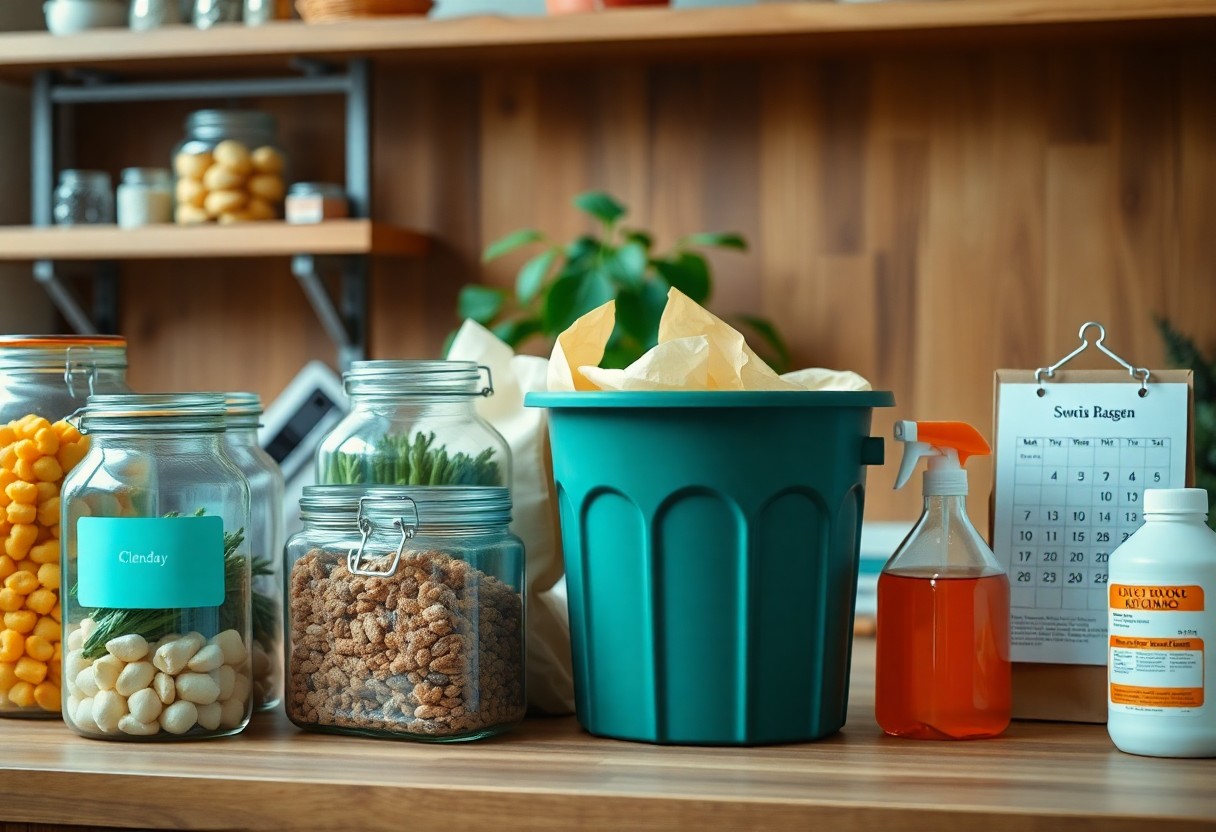
Essential Tips for Starting Zero Waste
After you’ve made the decision to embrace a zero waste lifestyle, it’s helpful to have some practical tips in mind to ease your transition. Start by evaluating your current habits and identifying areas where you can reduce waste. You can focus on making small, achievable changes that collectively have a significant impact. Here are some imperative tips to help you get started:
- Set realistic goals for yourself.
- Assess your current waste output.
- Educate yourself on zero waste principles.
- Find a supportive community.
- Celebrate your progress, no matter how small.
Knowing where to begin and how to maintain motivation is fundamental as you strive to create a more sustainable lifestyle.
Reducing Single-Use Items
Even small changes can lead to significant reductions in the amount of waste you generate, particularly when it comes to single-use items. Start by examining the products that you frequently use and consider how many of them can be eliminated from your routine. For example, swapping plastic straws for metal or bamboo ones, or carrying a reusable water bottle instead of buying bottled water, can dramatically decrease your plastic footprint.
By consciously choosing to reduce your reliance on single-use items, you’ll not only minimize waste, but you’ll also encourage a wider movement towards sustainable practices. Keep in mind that each effort adds up, contributing to a healthier planet.
Embracing Reusable Alternatives
Essential to adopting a zero waste lifestyle is the decision to embrace reusable alternatives for items you typically dispose of after a single use. This transformative step not only saves money in the long run but also significantly cuts down on waste production. Transitioning to alternatives like cloth shopping bags, stainless steel containers for food storage, and glass jars for products like shampoo or detergent empowers you to make eco-friendly choices.
Items such as reusable beeswax wraps and silicone bags can be a revelation in how you store food and snacks, effectively reducing dependence on plastic wraps and bags that often end up in landfills. For instance, glass food containers not only preserve your meals but are also safe and sustainable, unlike their disposable counterparts. Taking these steps will foster a positive impact on both your personal routine and the environment, showcasing the benefits of a mindful, waste-free lifestyle.
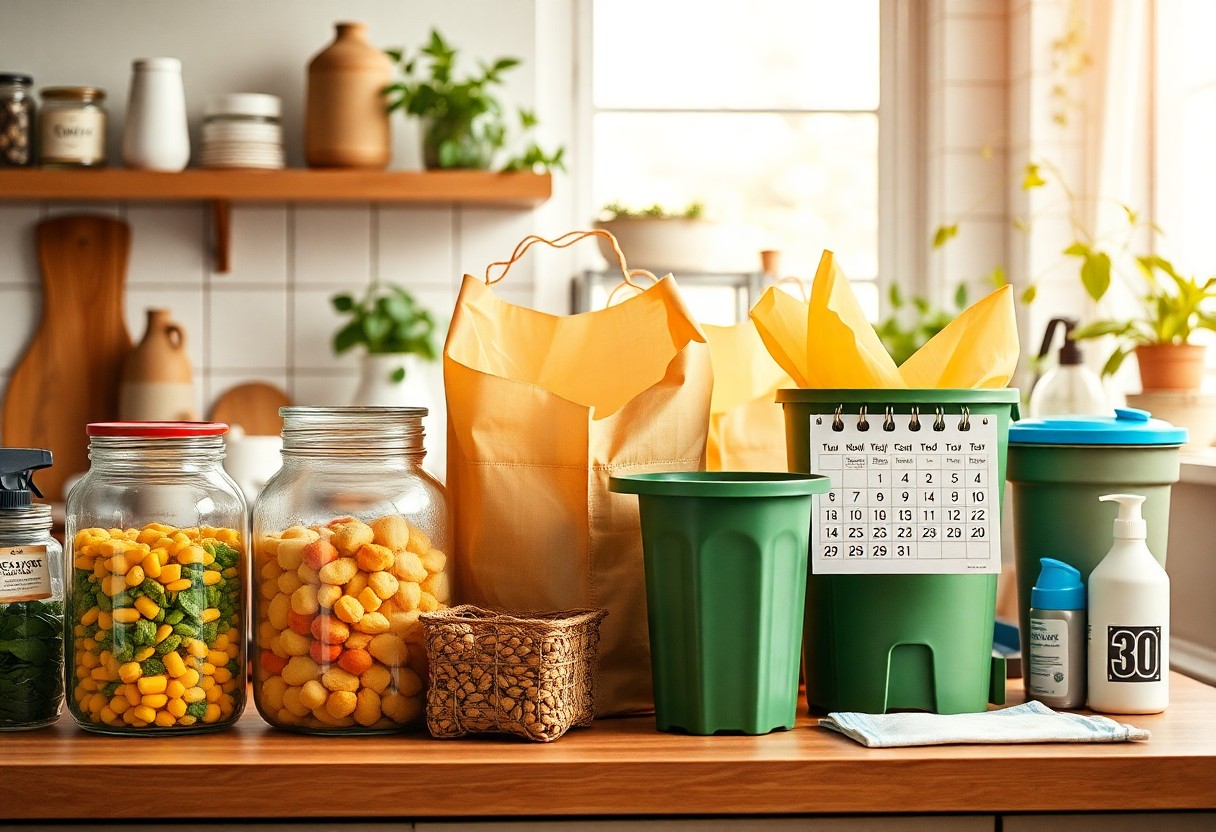
Sustainable Shopping Practices
For anyone looking to reduce their waste, adopting sustainable shopping practices can be an effective way to make a significant impact. By making informed choices about the products you purchase and the brands you support, you contribute to a more environmentally-friendly lifestyle. Start by analyzing your current shopping habits and identify areas where you can make sustainable adjustments. This could include evaluating how often you shop, where you shop, and what types of products you are buying. With a little effort, you can transition into a more sustainable shopper in just 30 days.
Choosing Package-Free Products
On your journey to living zero waste, one of the simplest yet most effective practices is choosing package-free products. By opting for items that come without excessive packaging, you not only reduce the amount of waste you generate but also encourage suppliers to consider more sustainable options. Look for bulk sections in your local grocery store or specialty shops that allow you to bring your containers, and choose products such as fruits, vegetables, and grains that are sold without plastic wrap. This small change can make a big difference in decreasing your environmental footprint.
Supporting Local and Sustainable Brands
On another note, supporting local and sustainable brands is an integral part of practicing responsible consumption. When you choose to buy from local artisans and producers, you help to boost the local economy and lower the carbon footprint associated with transporting goods. Seek out brands that prioritize sustainable materials, ethical labor practices, and environmentally-friendly production methods. Research makes it easier to find companies that align with your values and are committed to reducing their environmental impact.
Brands that embrace sustainability often provide transparency about their sourcing and manufacturing processes, making it easier for you to make informed choices. By investing in sustainable products, you’re not only enhancing your zero waste lifestyle but also promoting a healthier planet. This positive impact extends beyond your own consumption, as local businesses are more likely to adopt practices that benefit both the community and the environment. Additionally, many sustainable brands focus on quality over quantity, which means you are likely to be purchasing items that are made to last, ultimately reducing your need to replace them frequently.
Mindset Shifts for Zero Waste Living
Despite the challenges that come with adopting a zero waste lifestyle, embracing the right mindset can significantly ease your transition. Shifting your perspective to view waste not as an inevitable part of life but as a negative byproduct of consumerism is necessary. By understanding that your choices have implications not only for your life but also for the environment, you open yourself up to new habits and practices that align with a sustainable future. This mindset shift will empower you to make more informed decisions and to actively seek alternatives that contribute to waste reduction.
Changing Consumption Habits
There’s no denying that changing your consumption habits is a foundational aspect of living zero waste. You should start by assessing your current purchases and recognizing patterns that lead to excess waste. For instance, when shopping, opt for products with minimal packaging or choose items with no packaging at all. You might also want to prioritize buying in bulk, which often results in less waste without sacrificing choice. Being conscious of your consumption habits allows you to reduce what you buy and ultimately cuts down on what you throw away.
Cultivating a Minimalist Lifestyle
Lifestyle changes go hand in hand with your journey toward zero waste. A minimalist lifestyle encourages you to decrease the number of possessions you have, thereby reducing the waste generated from items you might not truly need. Begin by decluttering your living space—evaluate what brings you joy and what serves a purpose, and let go of the rest. This will not only ease the burden of excess but also help you direct your resources toward meaningful items that support your sustainable living goals.
Waste often goes beyond just the physical items you discard; it’s also about the emotional and mental clutter that can arise from keeping unnecessary things. When you cultivate a minimalist lifestyle, you allow space for the things that truly matter and eliminate distractions that contribute to impulsive buying. By embracing a minimalist approach, you find that your needs are simpler and your habits become more sustainable, paving the way for consistent zero waste living.
Overcoming Challenges
Unlike many lifestyle changes, embracing a zero-waste philosophy may come with its share of hurdles. You may experience frustrating moments when your efforts seem small in the grand scheme of waste reduction. However, understanding these challenges can equip you with the mental resilience to persist. As you launch on this transformative journey, consider seeking additional insights from The Beginner’s Guide to Zero-Waste Living – maia, which can provide you with further encouragement and innovative ideas to stay motivated.
Dealing with Setbacks
Now and then, you will encounter setbacks that might challenge your determination. Perhaps you’ve forgotten your reusable bags at home during a shopping trip or inadvertently purchased a product with non-recyclable packaging. It’s important to view these instances as opportunities for learning rather than as failures. Reflect on what led to those choices and integrate that learning into your future habits. Each setback can provide valuable insights, ultimately steering you towards better-informed decisions for your lifestyle.
Finding Community Support
The sense of isolation can often creep in when you are making lifestyle changes, including transitioning to a zero-waste life. Connecting with others who share your values can be incredibly uplifting. Look for local groups, online forums, or social media communities focused on zero-waste living. Engaging with these networks not only provides encouragement but also offers access to shared resources, ideas, and experiences that can enhance your journey toward sustainability.
Overcoming the isolation associated with zero-waste living is significantly easier when you can share your experiences, struggles, and triumphs with a community that understands your goals. Whether it’s joining a local cloth bag-making workshop or discussing innovative alternatives for common household items, the support from fellow eco-warriors can inspire you and reinforce your commitment. Recognizing that you are not alone in this endeavor can turn what might feel like an uphill battle into a collaborative and empowering experience.
Final Words
To wrap up, launching on your zero waste journey is an empowering decision that can positively impact both the environment and your lifestyle. As you adopt these practical steps over the next 30 days, you will be well on your way to reducing your waste footprint, conserving resources, and fostering a more sustainable way of living. By starting small and gradually implementing these sustainable practices, you’ll find that each change you make enriches your understanding of consumption, encouraging mindfulness in your purchases and habits. Embrace the challenge and allow yourself to grow as you discover innovative solutions to everyday waste issues.
By incorporating these sustainable changes into your daily routine, you not only contribute to a healthier planet but also inspire those around you to follow suit. As you progress, take opportunities to educate yourself further about sustainable living, connect with local zero waste communities, and engage in meaningful discussions that can enhance your journey. Your commitment over the next month will set a strong foundation for a lasting change in your life and the lives of those in your community. Onward to a waste-free lifestyle!
FAQ
Q: What is the first step I should take to begin my zero waste journey?
A: The first step in starting a zero waste lifestyle is to evaluate your current waste habits. Take a week to track all the items you throw away or recycle. This will help you identify the biggest sources of waste in your life. From there, you can focus on specific areas to reduce waste, such as food packaging, personal care products, or single-use items.
Q: How can I reduce plastic usage effectively in 30 days?
A: To reduce plastic usage effectively, start by replacing single-use plastics with reusable alternatives. In the first week, invest in a sturdy reusable water bottle, shopping bags, and coffee cup. In the following weeks, focus on eliminating plastic wrap with beeswax wraps or containers, and choose bulk bins for shopping to avoid plastic packaging. Gradually, by the end of the month, aim to incorporate more sustainable products into your daily routine.
Q: What are some easy swaps I can make in my bathroom?
A: In your bathroom, consider making the following easy swaps: replace plastic toothbrushes with bamboo ones, opt for bar soap instead of liquid soap in plastic bottles, and switch to shampoo bars instead of bottled shampoo. Additionally, using a reusable razor can significantly cut down on waste. By implementing these changes, it is possible to reduce bathroom waste significantly in just 30 days.
Q: How can I manage food waste while transitioning to zero waste?
A: Managing food waste is key to a zero waste lifestyle. Start by meal planning to avoid buying unnecessary items. Use a shopping list based on what you need for the week to minimize impulse buys. Store fruits and vegetables properly to prolong their lifespan, and make use of scraps by creating compost or incorporating them into your meals. By the end of the 30 days, aim to produce much less food waste and explore ways to repurpose leftovers.
Q: Are there specific resources or communities that can help me on this journey?
A: Yes, there are numerous resources and communities available for those interested in zero waste living. Look for local zero waste groups on social media or community forums, where you can find support and share experiences. Websites and blogs dedicated to sustainability often provide practical tips and challenges. Additionally, consider attending workshops or events focused on environmental living to enhance your knowledge and connect with like-minded individuals.
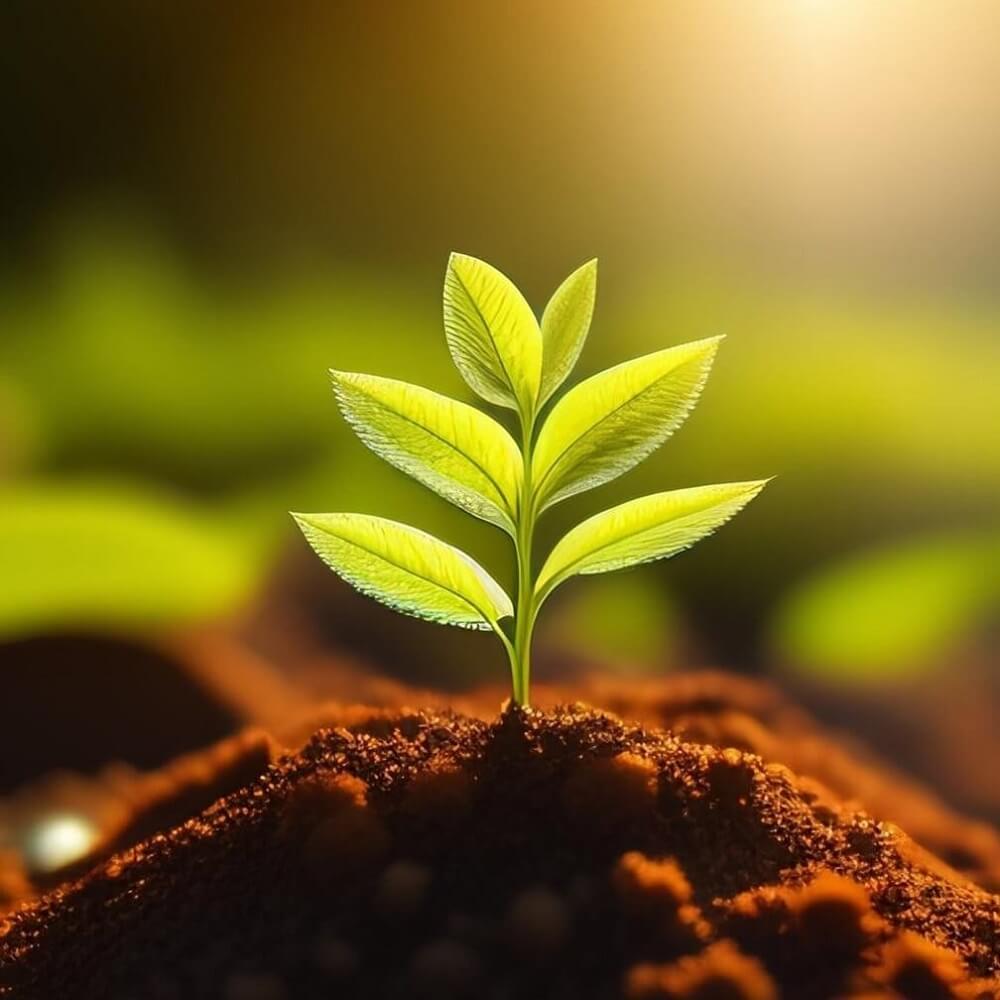
Our contributing author is a passionate advocate for eco-friendly living and sustainability. With a background in eco-life, they are dedicated to inspiring and empowering individuals to adopt environmentally conscious lifestyles. Through insightful articles, they share practical tips, innovative solutions, and thought-provoking perspectives to promote a greener, more sustainable world. Join them on the journey towards eco-smart living and discover how small choices can make a big impact. 🌱

